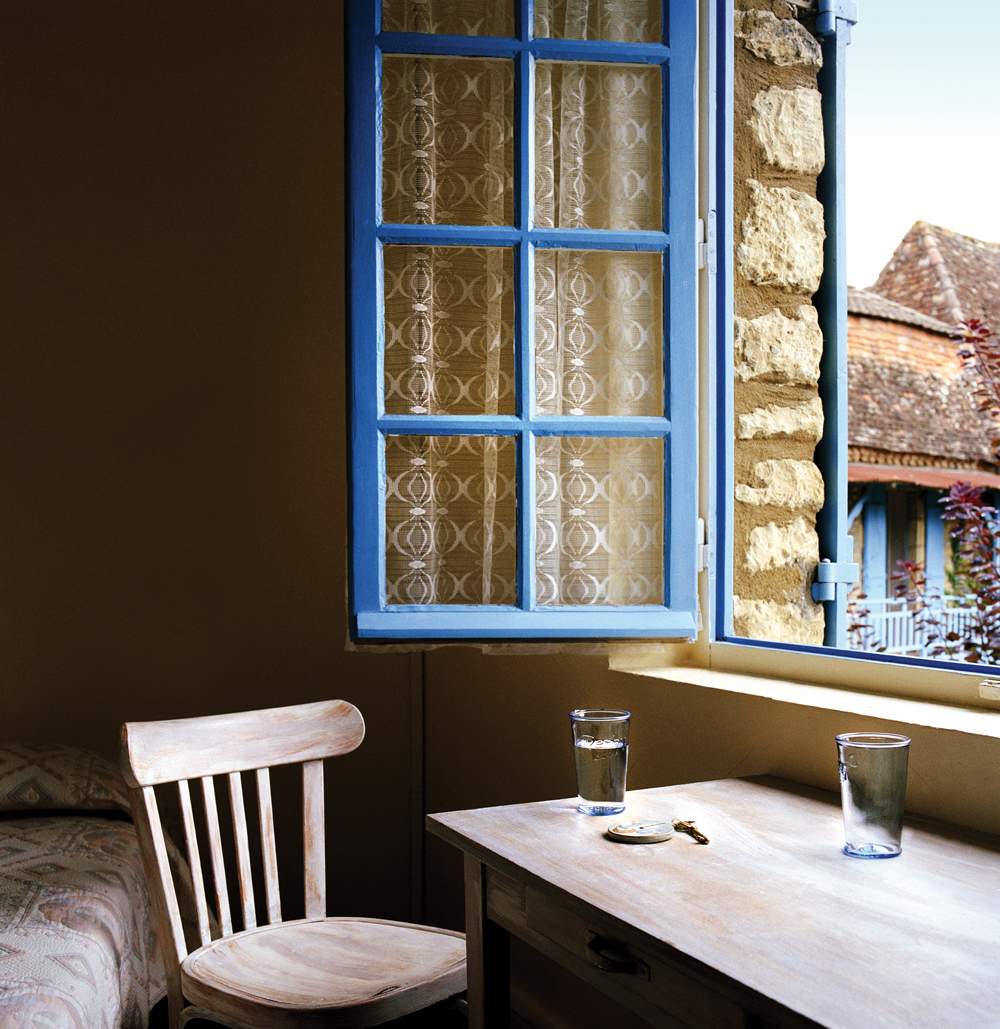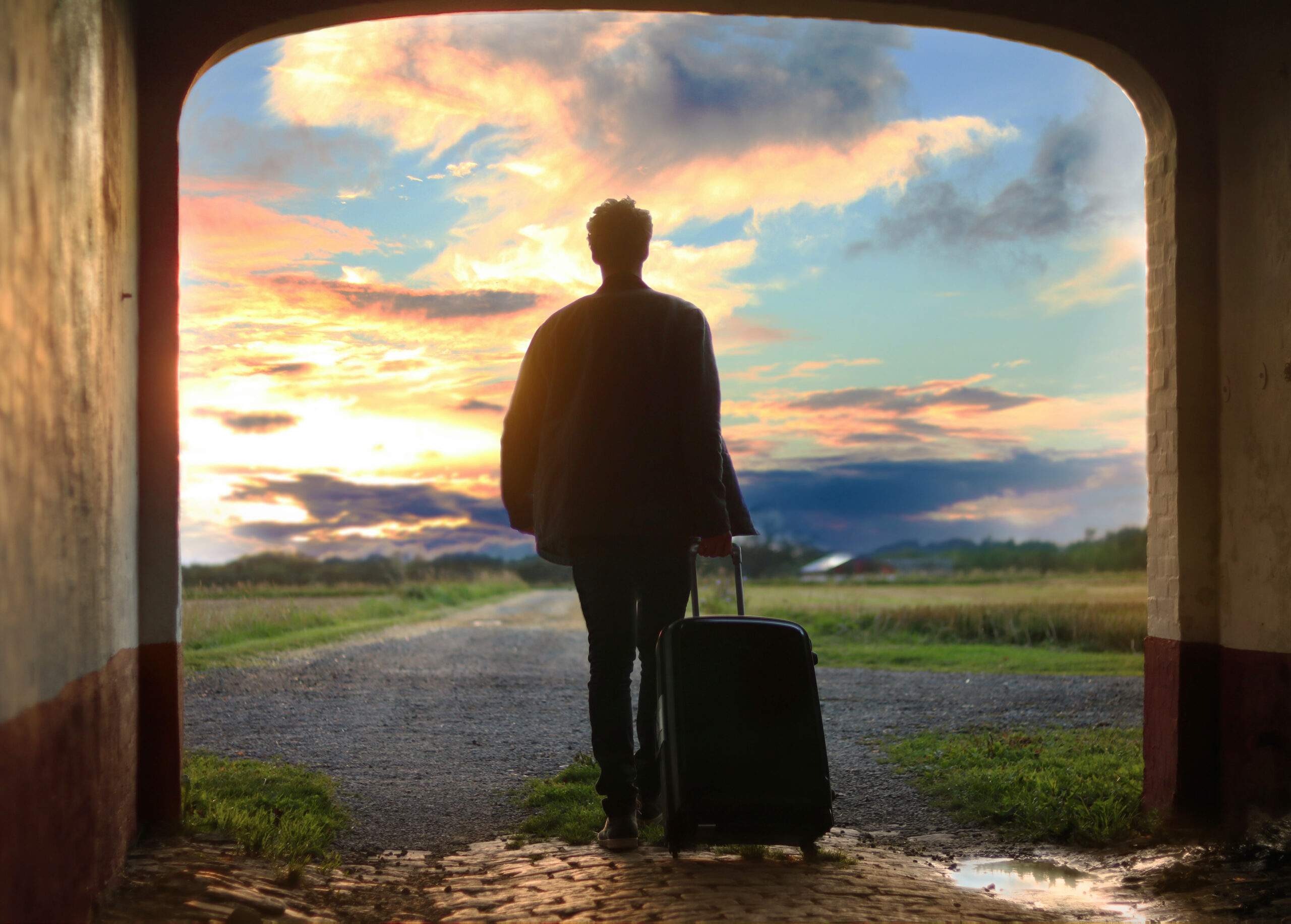For more than thirty years now, I’ve been a full-time journalist and travel writer: One card in my wallet shows I flew more than 100,000 miles on United Airlines alone last year—I’ve long been a member of the company’s Million Mile club—and my doctor has recently taken to prescribing daily medication for my blood pressure. My poor wife has grown too accustomed to hearing pages spewing from our fax machine at 3:00 a.m., or seeing me race off, before dawn, on what are meant to be holidays, to deal with “urgent” requests from bosses or “can’t wait” emails.
Still, I never guessed, when I fell into this life, that soon so much of the world would be stockpiling data, uploading photos, and trying to keep up with the roller coaster of the Nikkei stock market. We’re all journalists now, it can sometimes seem, racing to stay on top of a moment that refuses to stay put. The only way I’ve found to try to keep my balance in a globe permanently on the move—and ever more cluttered with stuff—is to step out of the world on a regular basis, and to step back from my life, so as to see what’s truly inside them. Otherwise, I can feel I’m standing two inches away from a vast and constantly shifting canvas, terminally unable to make out the larger picture.
Over the years, therefore, I’ve gradually tried to develop various decidedly homemade and amateurish ways of keeping my head clear and ensuring I have time and space to breathe.
The first thing I did, when I was 29, was leave my 25th floor office four blocks from Times Square and move to the backstreets of Japan. My job, writing on world affairs for Time, was exhilarating, and that was precisely why I felt I had to leave it: The minute-to-minute excitements could blind me from the fact that I was seeing only one tiny corner of the universe. The same was true in Kyoto, of course, but it was a very different corner, one based on principles and values fashioned 1,200 years before—not the previous weekend.
Even better, the minute I arrived in Japan, not speaking Japanese, I was a voluntary deaf-mute of sorts, as well as an illiterate. I had to watch everything more attentively. I had to try to read gestures and patterns without knowing the words beneath them. I couldn’t begin to take myself and my ideas very seriously, and my business card and résumé meant nothing to kindly, patient people who saw before them a disheveled, dark-skinned foreigner gesturing like an idiot.

With no other means of transport, I walk around the neighborhood, register the early plum-blossoms on the bare winter branches, notice how the light is changing through our pebble-glass windows, notice how the light is changing in myself and my beloved family.
My schools in England and the U.S. taught me to speak, to push myself forward, to consider myself something valuable. Japan, I felt and found, would train me in how to listen, how to make myself as invisible as possible, how to attend to everything around me and think in terms of larger units than the self. Of course Japan can be as cacophonous, crowded, and dizzying as anywhere. But at least I was in a country that believed in the power of an empty room (if there’s just one scroll and a flower in a tatami space, you bring all your attention to that scroll and flower, and find everything you need in them; on the stone basin near the famous rock garden in Kyoto, an inscription reads, “What you have is all you need”).
The next thing I did, four years on, was make sure to take a retreat every season, for at least three days, if possible. Moving to Japan and leaving the office—while bringing a Japanese partner and her two children into my life—had left me with even more daunting obligations than before. The only way I could do justice to them, I felt, was by stepping into silence every now and then to remind myself of what I cared about and how to point myself in that direction.
Of course I felt more than a little guilty, every time, to be leaving my sweetheart behind, neglecting my bosses’ frantic emails, or missing a friend’s birthday party, but I had to spend a few days in absolute stillness, doing nothing, to see that it was only by collecting myself in this way that I could gather anything fresh and creative and joyful to share with friends and bosses. Otherwise, I was foisting my distractedness on them.
One year after embarking on this practice of going on retreat, I moved with my Japanese family into a two-room apartment more or less in the middle of nowhere. We had—and have—no car or bicycle or TV I can really follow; we also have the luxury of all those things we don’t have to think about. I wake up and the day seems to stretch forever.
Not getting any newspapers or magazines—even though I’m a journalist—means I’m not furiously trying to keep up with a moving target I can never keep up with, and I have to try to see events in a larger context. And not having any private means of transportation means I take walks around the neighborhood, register the early plum-blossoms on the bare winter branches, notice how the light is changing through our pebble-glass windows, notice how the light is changing in myself and in my beloved family.
I sit at my desk and thoughts come and go. The daphne in the street outside suggests the end of summer. The occasional cries of school kids tell me it’s 7:45. The trees in the park a block away begin to blossom and then to fade and I need no calendar, no official lesson in how everything is always changing and how the pattern of that change is much the same.
Four years after I became part of this seasonal rhythm, my bosses back in New York asked me to switch from fax to email. They’d shown preternatural forbearance in allowing me to work in a tiny flat 8,000 miles from the office, so I was in no position to protest. Nevertheless, I try hard never to go online until I’ve completed my day’s work—not a hard thing for a writer—and I signed on for a service that limited me to 30 hours a month. That way I’m never tempted to stay in front of the screen—when there is so much radiance and beauty around me—for more than an hour a day.
Given access to information, I’d have a hard time resisting it, and then I’d start following this lead and that ancient piece and that obscure link till I’d look up and find that darkness had fallen.
I wouldn’t recommend this to anyone else—least of all, parents of small children—but I’m still delighted to be the rare full-time journalist who’s never had to use a cell phone and who never wears a watch when he’s home. My job requires me to leave my sanctuary quite a bit—in one typical stretch last year I found myself in Iran, Turkey, California, Japan, Singapore, and Namibia in the space of three weeks. The more such movements and commitments pile up, the more I try to make sure I don’t have an iPad or Skype account or other weapons of mass distraction. When the plane is delayed three hours, I can close my eyes or just let my imagination drift.
My happiest moments in life, I’ve found, are when I’m not running to meet a deadline; and my most constructive ones come when I’m not thinking of anything at all. I cherish those open spaces in the same way I do the negative space in a painting or the white space on a page: they allow me to breathe, to ramble, and to come up with possibilities I never see when focused on one object.
So every day, after finishing my writing—and before taking on emails and letters to friends—I try to sit on our 30-inch terrace and just look at the neighborhood. If it’s sunny, I’ll read for an hour. My companions on the page are people I love for their special gift for sitting still: Thomas Merton, say, or Henry David Thoreau or, most explosively of all, Emily Dickinson. Within three sentences of picking up Proust, I’m in a wider dimension, slowed down, and brought to somewhere deep inside myself where I can see how much lies within every passing moment.
My wife meditates every day, to attempt to ensure she’s rooted in reality; friends go for a run, or shoot hoops, or cook, or play the piano. All of us now, I suspect, in an age of permanent distraction and information and entertainment—round-the-clock temptation and fracturing—need some habit or conscious way of grounding ourselves in something deeper. The busier you are, the more you have to step away from busy-ness, to see how important each part of it really is.
One of my most recent practices comes every day after I return from the health club (itself a wonderful chance to spend more than an hour doing nothing much). I don’t want to read or write any more, I’ve already sent long missives to friends and bosses, and I don’t know whether it will be 60 or 90 minutes before I hear Hiroko’s ring at the door.
So I’ll put on a piece of music and turn off all the lights. It can be Bach, it can be Leonard Cohen. It can be those other worldly singers of storms and radiance within, Sigur Rós. It could even be those shameless neo-punks, Green Day. What I play doesn’t matter.
When I hear Hiroko’s footsteps on the stairs outside, I’m much fresher and clearer than when I just “kill time” by idly watching baseball on TV or scrolling through YouTube videos. And when we turn in for the night, my sleep feels less jangled. I wake up more refreshed.
It’s the open spaces in any life, I suspect—the moments when you lose yourself—that make for happiness, peace, and clarity. Every morning, as I walk toward my desk, golden light flooding in through the windows very often, the grinding of the bus outside marking the hour, I think back on my life near Times Square and wonder how I could construct my sense of fulfillment, in those days, so narrowly. I’d never want to live on a mountaintop, but I’m deeply grateful that, the next time I’m in Times Square, I’ll feel I have something to bring back to it.








